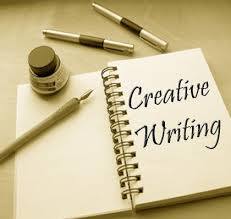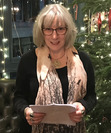The Importance of Reading When You’re a Writer
I might be preaching to the converted here, but I’m sure you’re just as shocked as I am when new writers say they don’t read. They seem quite proud of the fact, too, as though they believe their writing is all the purer because they don’t read other authors’ books. Where the truth of the matter is their writing is all the poorer for it. Being well-read improves not only your knowledge, and understanding of storytelling but your writing, too. How can you claim to be a writer, when you’re only doing half the job?
In this post, I hope to demonstrate areas where you can improve your writing by simply being well-read. Well-established authors always spoke about the importance of reading at any of the talks given at the Harrogate Crime Writing Festival, which I went to when I first set out on my writing journey many years ago.
“Read, read, read. Read everything — trash, classics, good and bad, and see how they do it.”William Cuthbert Faulkner September 25, 1897 – July 6, 1962
was an American writer known for his novels and short stories
I’ve been an avid reader since I left school at sixteen. Being dyslexic, my problem has been being able to pronounce words. So, with the help of a small dictionary, I kept in my bag, I would look the word up to find out its meaning. This way should I ever come across it again, I might not be able to pronounce the word, but I would know its meaning, thus I would be able to decipher what the sentence meant.
Before the age of the internet, I had read hundreds of books, some I still remember, others I have completely forgotten. I never thought of recording the title of the books, or the name of the authors. My taste was and still is diverse. From classics like Jane Eyre, and Dracula to Stephen King to Victoria Holt from horror to the love of sci-fi, which my father got me interested in reading, and everything in between. Now with Goodreads, you can keep a record of your reading. Some books, after reading them, stay with you, whereas others are soon forgotten, but why?
So how does reading novels help the fiction writer?
This is where the importance of reading comes into play when you are writing. I feel the need here to stress, I’m not talking about copying anyone’s books word for word. What I’m talking about is understanding what makes a book unforgettable, and why other books are soon forgotten.

Of course, it might mean something as simple as the writing was powerful, the plot line and characters were believable which had you turning the pages, but what else might it be. Here’s a list of things you might learn from reading other people’s books.
How does the author begin their sentences? It’s too easy to be repetitive in the opening of each of your sentences. Too many I was/ they were etc make your writing dull and uninteresting. How do they open each new chapter? Once again, this is an area where all new writers need to keep an eye out for repetition. Make sure each new chapter has a fresh, inviting beginning and an exciting ending which makes the reader want to know what happens next. How is the author telling their tale? Is there a narrator? Does the story open with a question? Do you know quickly whose story it is? Is it being told in first, second or third person?Do they change seamlessly from one character’s point of view to another? As a writer, you need to master the skill of staying in your main character’s point of view. Head-hopping can be very confusing for the reader. If you want to shift to another character’s point of view, you need to do it seamlessly so the reader doesn’t lose the thread of the story. Are they able to use flashbacks seamlessly? Flashbacks are a great way of telling your readers what happened in the past, but they mustn’t interrupt the flow of the story? So remember to keep the time shift clear and precise so your reader knows exactly where they are. Reading helps you improve your plotting skills. Seeing how other writers’ stories unfold, and how they keep their readers guessing what’s going to happen next, will show you how you can improve your plotting skills. Reading allows you to understand the difference between good and bad writing. What’s the difference between good and bad writing? As a reader, the writing must engage you straightaway and keep you turning the pages. If the writing is plodding along and the reader is skipping pages to get to the action, then you have a problem. Reading a wide range of different genres allows you to know what has been done before. This way, you can come up with a unique storyline. Remember, there are only seven basic plot lines. Overcoming the Monster, rags to riches, the quest, voyage and return, comedy, tragedy and rebirth, the secret to good writing is in the telling, and how you tell your story.
I hope my post has given you something to think about. Please let me know what you think makes a great story. Thank you for dropping by and leaving a comment.
Chat again soon.



